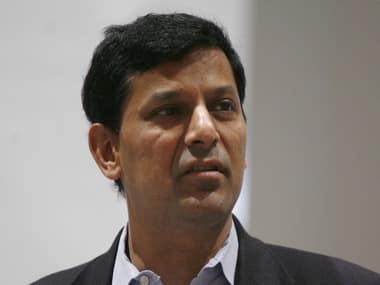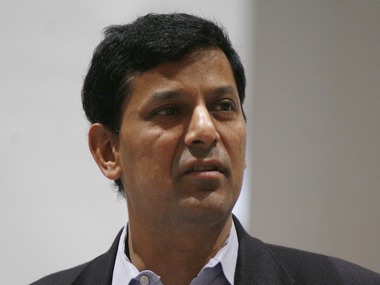Singapore: US companies are doing well, but the country is faced with entrenched political divisiveness that makes reaching any kind of compromise on the budget deficit difficult, former IMF chief economist Raghuram Rajan said on Wednesday.
[caption id=“attachment_26334” align=“alignleft” width=“380” caption=“The former IMF chief economist thinks that the high profit margins enjoyed by US firms are unlikely to be competed away anytime soon. Tami Chappell/Reuters”]
 [/caption]
[/caption]
He said US firms are enjoying huge profits and will likely step up hiring in the second half as margins remain at elevated levels. The country’s politicians are, however, unlikely to agree on how to resolve the widening deficit and related issues like Medicare until after next year’s presidential election. “The bottom line is the underlying private sector economy in the United States is extremely profitable at this point and is looking to grow,” Rajan said at an investment conference in Singapore.
“For the first time, I have heard my private sector businessmen friends talk about investing in the United States, especially in manufacturing,” said Rajan, a professor at the University of Chicago’s Booth School of Business and also economic advisor to the Indian prime minister.
The former International Monetary Fund chief economist said the high profit margins enjoyed by US firms are unlikely to be competed away anytime soon as neither the high margins that usually attracted new entries nor higher input costs seemed to be materialising. “It’s reasonable to accept some sort of narrowing of those margins over time, but I don’t see the mean (average) revision happening as quickly,” he said. “Especially at the small and medium business level, they are still struggling for capital, and so it’s hard to see a huge amount of new entry.”
“As far as the input costs being bid up, it seems to be that apart from commodity prices, labour costs are still relatively contained, although that depends on whether it’s skilled labour or not,” he added.
Impact Shorts
More ShortsHis remarks were in contrast to several US equity strategists, who said at the Reuters 2011 Investment Outlook Summit last week that optimism about robust profits may be waning. “History suggests that about one year after the ISM peaks, margins peak,” said Goldman Sachs chief US equity strategist David Kostin. The Institute for Supply Management’s closely watched manufacturing index peaked in February, at 61.4, and is now just holding in expansion mode, above 50. It was 53.5 for May.
Sarah Palin
Turning to the political situation in the United States, Rajan said President Barack Obama and his Republican opponents will likely agree to raise the country’s $14.3 trillion debt limit by August 2 to avoid the first default in US history. However, he did not expect any progress on how the government can boost revenue or reduce expenses to reduce the deficit, as a growing number of U.S. politicians and voters on the left and right shared a common distrust of Obama and Wall Street and were less inclined to compromise.
“I call this the ‘Sarah Palin-isation’ of US politics,” Rajan said, referring to the Republican former vice-presidential candidate.
“To my mind, one of the reasons Sarah Palin has so much following amongst the broader public is partly because she doesn’t represent the elite, she doesn’t know much history (and) she doesn’t know much economics,” Rajan told delegates at the Singapore conference, which was organised by Japan’s Nomura. “I think that is her great strength: the fact that she doesn’t know and therefore isn’t part of the crowd that drives the kinds of compromises that politics necessarily involve.”
As such, any meaningful negotiations will only take place after the next year’s presidential election, he said, adding that the Democrats will likely retain the presidency with the Republicans controlling Congress, forcing both sides to seek common ground.
Reuters
)